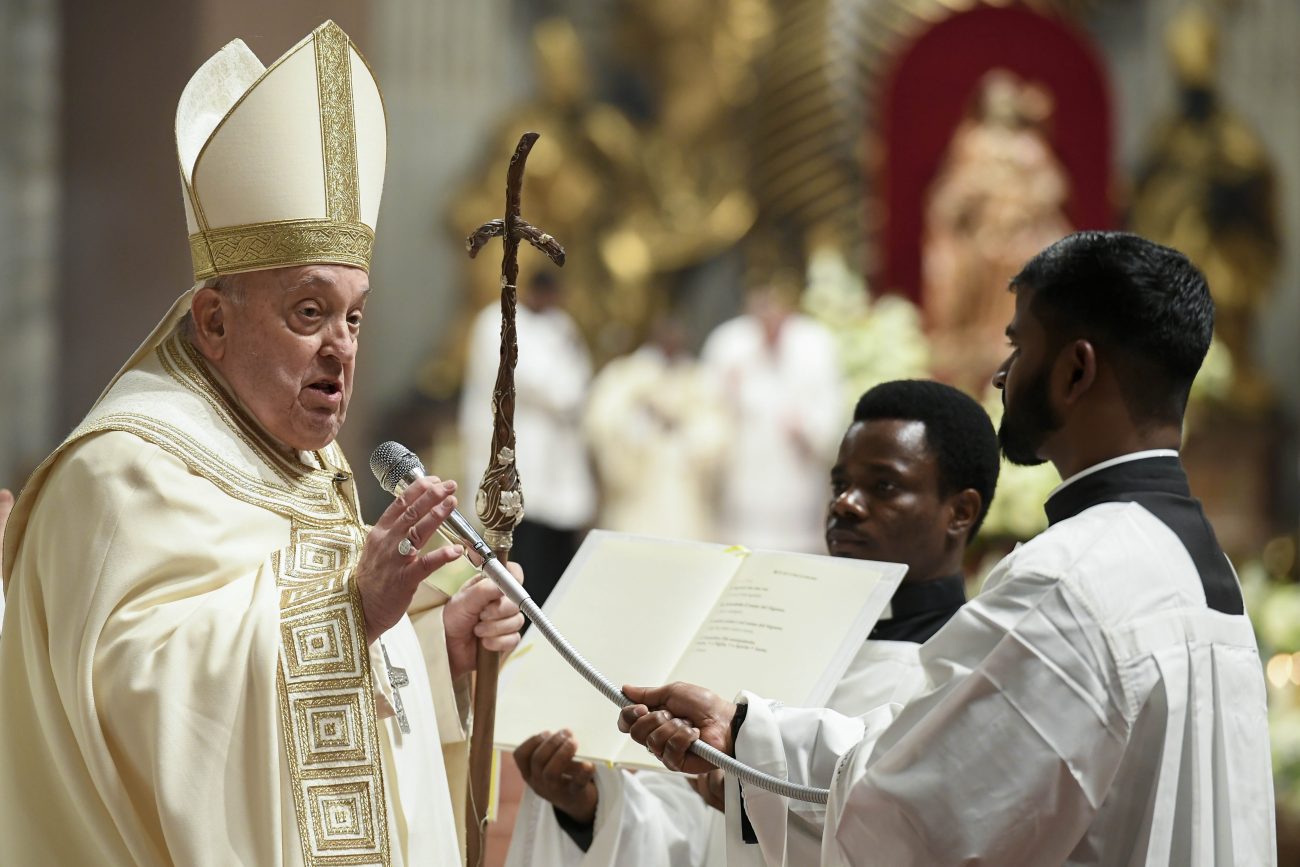VATICAN CITY (CNS) — The way consecrated women and men live their vows of poverty, chastity and obedience can offer light and hope to a world looking for authentic relationships marked by love and self-giving, Pope Francis said.
Celebrating vespers Feb. 1, the eve of the feast of the Presentation of the Lord and of the Catholic Church’s celebration of World Day for Consecrated Life, the pope thanked members of religious congregations for their witness, saying it is “leaven for the church.”
Pope Francis was joined by hundreds of sisters, brothers, consecrated virgins and religious-order priests, including the new leadership of Dicastery for Institutes of Consecrated Life and Societies of Apostolic Life: Consolata Missionary Sister Simona Brambilla, the prefect; and Cardinal Ángel Fernández Artime, a Salesian, the pro-prefect.
According to Vatican statistics, there are close to 600,000 professed women religious in the Catholic Church. The number of religious-order priests is about 128,500 and the number of religious brothers is close to 50,000.
The vespers for the feast of the Presentation, also known as Candlemas, began with eight religious women and men lighting candles around the main altar of St. Peter’s Basilica, evoking the feast’s celebration of Simeon and Anna recognizing Christ as the light of the world when Mary and Joseph presented him in the temple.
Deacons put incense in three large braziers at the foot of the altar, sending up thick clouds of smoke to represent prayers rising to heaven.
In his homily, Pope Francis focused on how religious consecration aims to imitate Jesus and his complete devotion to doing God’s will, and “how, through the vows of poverty, chastity and obedience that you have professed, you can bring its light to the women and men of our time.”
Through poverty, the pope said, religious show how things have value “in the order of love, rejecting everything that can obscure their beauty — selfishness, greed, dependence, violent use and misuse for the purpose of death and destruction — and embracing instead all that can highlight that beauty: simplicity, generosity, sharing and solidarity.”
Choosing chastity and not marriage, the pope said, “reaffirms the absolute primacy of God’s love, to be received with an undivided and spousal heart.”
Too often, he said, the world is marked by “distorted forms of affectivity, in which the principle of pleasure drives people to seek in others the satisfaction of their own needs rather than the joy born of a fruitful encounter.”
“The chosen spouse of a lifetime is replaced by the ‘partner’ of the moment,” Pope Francis said, “while children freely accepted as a gift are replaced by those demanded as a ‘right’ or eliminated as ‘unwanted.'”
The chaste love of a consecrated person, on the other hand, shows modern men and women “a way to heal the malady of isolation through the exercise of a free and liberating way of loving — a way of loving that accepts and respects everyone, while coercing or rejecting no one,” the pope said.
The obedience exercised in religious communities, he said, is “a prophetic sign for our society” because it is based on listening to one another and then acting, “even at the cost of setting aside our own tastes, plans and preferences.”
PREVIOUS: Help Purify, Restore Relationships, Pope Tells Judges at Vatican tribunal
NEXT: Nothing is Worth Sacrificing the Life of a Child, Pope Tells World Leaders




Share this story